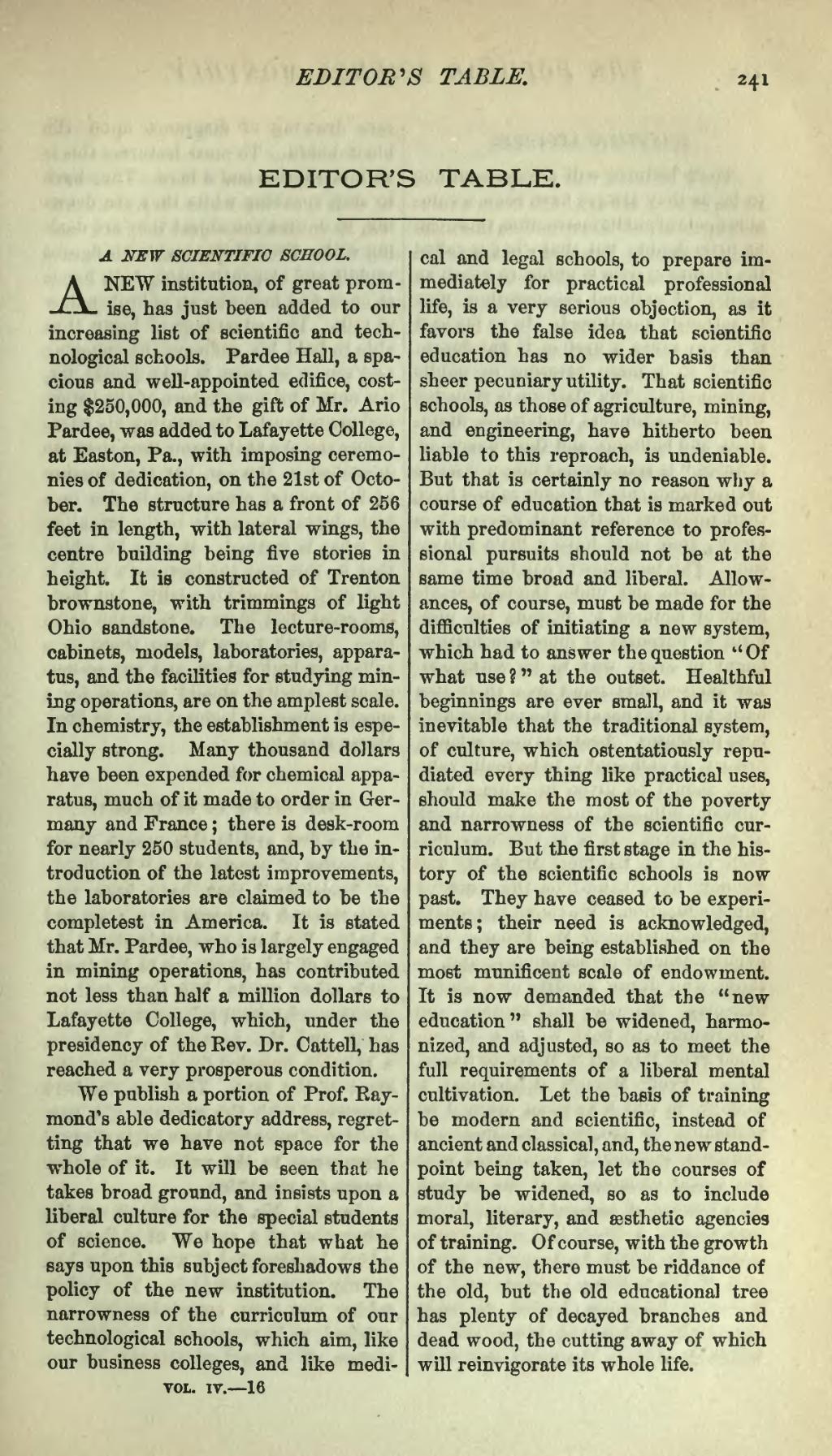A NEW SCIENTIFIC SCHOOL.
A NEW institution, of great promise, has just been added to our increasing list of scientific and technological schools. Pardee Hall, a spacious and well-appointed edifice, costing $250,000, and the gift of Mr. Ario Pardee, was added to Lafayette College, at Easton, Pa., with imposing ceremonies of dedication, on the 21st of October. The structure has a front of 256 feet in length, with lateral wings, the centre building being five stories in height. It is constructed of Trenton brownstone, with trimmings of light Ohio sandstone. The lecture-rooms, cabinets, models, laboratories, apparatus, and the facilities for studying mining operations, are on the amplest scale. In chemistry, the establishment is especially strong. Many thousand dollars have been expended for chemical apparatus, much of it made to order in Germany and France; there is desk-room for nearly 250 students, and, by the introduction of the latest improvements, the laboratories are claimed to be the completest in America. It is stated that Mr. Pardee, who is largely engaged in mining operations, has contributed not less than half a million dollars to Lafayette College, which, under the presidency of the Rev. Dr. Cattell, has reached a very prosperous condition.
We publish a portion of Prof. Raymond's able dedicatory address, regretting that we have not space for the whole of it. It will be seen that he takes broad ground, and insists upon a liberal culture for the special students of science. We hope that what he says upon this subject foreshadows the policy of the new institution. The narrowness of the curriculum of our technological schools, which aim, like our business colleges, and like medical and legal schools, to prepare immediately for practical professional life, is a very serious objection, as it favors the false idea that scientific education has no wider basis than sheer pecuniary utility. That scientific schools, as those of agriculture, mining, and engineering, have hitherto been liable to this reproach, is undeniable. But that is certainly no reason why a course of education that is marked out with predominant reference to professional pursuits should not be at the same time broad and liberal. Allowances, of course, must be made for the difficulties of initiating a new system, which had to answer the question "Of what use?" at the outset. Healthful beginnings are ever small, and it was inevitable that the traditional system, of culture, which ostentatiously repudiated every thing like practical uses, should make the most of the poverty and narrowness of the scientific curriculum. But the first stage in the history of the scientific schools is now past. They have ceased to be experiments; their need is acknowledged, and they are being established on the most munificent scale of endowment. It is now demanded that the "new education" shall be widened, harmonized, and adjusted, so as to meet the full requirements of a liberal mental cultivation. Let the basis of training be modern and scientific, instead of ancient and classical, and, the new standpoint being taken, let the courses of study be widened, so as to include moral, literary, and aesthetic agencies of training. Of course, with the growth of the new, there must be riddance of the old, but the old educational tree has plenty of decayed branches and dead wood, the cutting away of which will reinvigorate its whole life.

